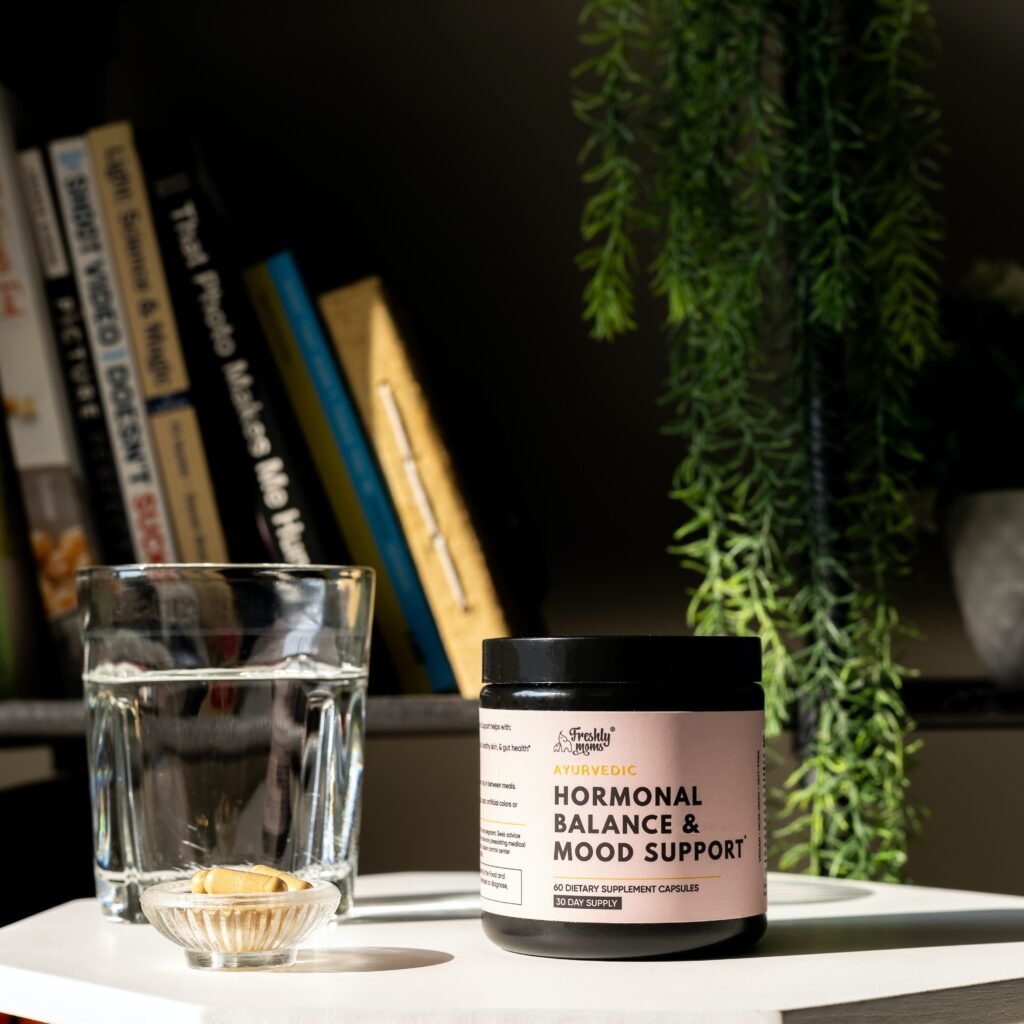Alright, let’s talk about hormone-healthy dietary choices for both men and women. We all know the importance of hormones in our body, as they play a vital role in regulating various functions. But did you know that what you eat can have a significant impact on your hormone levels? Yes, it’s true! By making smart food choices, you can support a healthy hormonal balance. In this article, we will explore some of the best dietary choices that can help optimize hormone levels for both men and women. So get ready to discover some delicious and beneficial foods that can keep your hormones in check!
Importance of Hormone-Healthy Dietary Choices
Hormones play a vital role in regulating numerous bodily functions, including metabolism, growth and development, mood, and reproduction. When hormones are imbalanced, it can lead to a variety of health issues. Therefore, making hormone-healthy dietary choices is essential for maintaining overall well-being. By understanding hormones, their effects, and the role of diet in hormone balance, you can make informed decisions and prioritize your hormonal health.
Understanding Hormones
Hormones are chemical messengers produced by various organs and glands in the body, such as the thyroid, adrenal glands, and reproductive organs. They are responsible for coordinating and regulating many physiological processes, ensuring that they function correctly. Examples of key hormones include estrogen, progesterone, testosterone, insulin, and cortisol.
Effects of Hormone Imbalance
When hormones are out of balance, it can lead to various health issues. For example, an imbalance of estrogen and progesterone in women may contribute to menstrual irregularities, mood swings, and fertility problems. In men, imbalances in testosterone can result in reduced muscle mass, low libido, and mood disturbances. Hormonal imbalance can also have far-reaching effects on overall health, including weight gain, fatigue, insomnia, and even an increased risk of certain diseases like diabetes and cancer.
Role of Diet in Hormone Balance
Diet plays a significant role in hormone balance as it provides the body with essential nutrients needed for hormone production and regulation. Making healthy dietary choices can help support optimal hormone levels and minimize the risk of hormonal imbalances. By understanding the essential nutrients that contribute to hormone balance, you can make informed decisions about what you eat.
Essential Nutrients for Hormone Balance
Proteins and Amino Acids
Proteins and amino acids are the building blocks of hormones, so it’s crucial to incorporate high-quality protein sources into your diet. Foods like lean meats, poultry, fish, eggs, dairy products, legumes, and tofu are excellent sources of proteins and amino acids. Aim to consume a variety of these foods to ensure you’re getting a wide range of amino acids to support hormone synthesis and regulation.
Healthy Fats
Healthy fats are essential for hormone production as certain hormones, such as estrogen and testosterone, are synthesized from cholesterol. Including sources of healthy fats, such as avocados, nuts, seeds, and fatty fish like salmon, can help support hormone balance. Omega-3 fatty acids, specifically found in fatty fish and flaxseeds, have been shown to have anti-inflammatory properties and may help reduce the risk of hormonal imbalances.
Complex Carbohydrates
Complex carbohydrates provide a steady supply of energy and play a role in stabilizing blood sugar levels. This is important for hormone balance as fluctuations in blood sugar can disrupt insulin levels, leading to hormonal imbalances. Opt for whole grains, such as brown rice, quinoa, and oats, as well as fruits, vegetables, and legumes, to ensure you’re getting an adequate intake of complex carbohydrates.
Vitamins and Minerals
Vitamins and minerals are essential for hormone synthesis and regulation. Key nutrients to focus on include vitamin D, which is necessary for testosterone production; vitamin B6, which helps regulate estrogen and progesterone; and zinc, which is involved in the production of multiple hormones. Incorporate a variety of fruits, vegetables, whole grains, lean meats, nuts, and seeds into your diet to ensure you’re getting a wide range of essential vitamins and minerals.
Phytoestrogens
Phytoestrogens are plant compounds that have a similar structure to estrogen and can have weak estrogen-like effects in the body. Including foods rich in phytoestrogens, such as soy products, flaxseeds, and legumes, can help balance estrogen levels in the body. However, it’s important to note that more research is needed to fully understand the effects of phytoestrogens on hormone balance.
Antioxidants
Antioxidants help protect the body against oxidative stress, which can disrupt hormone balance. Including antioxidant-rich foods in your diet, such as berries, leafy greens, citrus fruits, and green tea, can help support overall hormonal health. These foods are also rich in vitamins and minerals that are essential for hormone synthesis and regulation.

This image is property of images.unsplash.com.
Foods That Promote Hormone Balance
Now that we have a better understanding of the essential nutrients for hormone balance, let’s explore specific foods that can promote hormonal health.
Salmon and Other Fatty Fish
Fatty fish like salmon, sardines, and mackerel are excellent sources of omega-3 fatty acids. These fatty acids help reduce inflammation in the body and are essential for hormone production and regulation. Including fatty fish in your diet a few times a week can provide you with the necessary omega-3s to support hormonal health.
Avocado and Nuts
Avocado and nuts are rich in healthy fats, including monounsaturated fats and omega-3s. These healthy fats help support hormone balance and reduce inflammation in the body. Additionally, nuts like almonds and walnuts also provide protein and fiber, making them a nutritious snack option.
Broccoli and Cruciferous Vegetables
Cruciferous vegetables like broccoli, kale, cauliflower, and Brussels sprouts contain compounds called indole-3-carbinol and sulforaphane, which can help balance estrogen levels in the body. These vegetables are also rich in fiber, vitamins, and minerals, making them a valuable addition to a hormone-healthy diet.
Leafy Greens
Leafy greens like spinach, kale, and Swiss chard are packed with vitamins, minerals, and fiber. They also contain antioxidants that help reduce oxidative stress in the body, supporting hormonal health. Including a variety of leafy greens in your diet can provide a wide range of nutrients that contribute to overall hormone balance.
Whole Grains
Choosing whole grains over refined grains is important for hormone balance. Whole grains like brown rice, quinoa, and oats are rich in complex carbohydrates, fiber, vitamins, and minerals. They provide a steady release of energy, helping to stabilize blood sugar levels and prevent insulin spikes, which can disrupt hormone balance.
Legumes
Legumes such as beans, lentils, and chickpeas are excellent sources of plant-based protein, fiber, and phytoestrogens. Including legumes in your diet can help balance hormone levels and provide numerous other health benefits.
Berries and Pomegranates
Berries, such as blueberries, strawberries, and raspberries, are rich in antioxidants that help protect against oxidative stress and support hormone balance. Pomegranates are also packed with antioxidants and have been shown to have anti-inflammatory effects, making them an excellent addition to a hormone-healthy diet.
Citrus Fruits
Citrus fruits like oranges, grapefruits, and lemons are excellent sources of vitamin C, which is essential for hormone synthesis and regulation. They also provide antioxidants that help reduce oxidative stress in the body, promoting overall hormonal health.
Flaxseeds and Chia Seeds
Flaxseeds and chia seeds are rich in omega-3 fatty acids and phytoestrogens, making them beneficial for hormone balance. These seeds can be easily incorporated into smoothies, oatmeal, and baked goods for an extra nutritional boost.
Green Tea
Green tea is known for its high antioxidant content, particularly a compound called epigallocatechin gallate (EGCG). EGCG has been shown to have various health benefits, including supporting hormone balance. Swap out sugary beverages for green tea to reap the benefits of its antioxidants and promote hormonal health.
Hormonal Health Tips for Men
Maintaining hormonal balance is important for men’s overall health and well-being. Here are some tips specifically aimed at supporting hormonal health in men:
Maintaining Optimal Testosterone Levels
Testosterone levels naturally decline with age, but there are steps you can take to maintain optimal levels. Regular exercise, particularly strength training, can help support testosterone production. Getting adequate sleep, managing stress levels, and consuming a diet rich in essential nutrients are also key factors in maintaining testosterone balance.
Avoiding Endocrine Disruptors
Endocrine disruptors are chemicals found in various products, including plastics, pesticides, and personal care items, that can interfere with hormone function. Minimize exposure to endocrine disruptors by opting for hormone-free and organic products whenever possible, and avoid using plastic containers for food and drink storage.
Including Cruciferous Vegetables in the Diet
Cruciferous vegetables like broccoli, cauliflower, and Brussels sprouts contain compounds that support the breakdown of excess estrogen in the body. Including these vegetables in your diet can help maintain a healthy estrogen to testosterone balance.
Limiting Alcohol Consumption
Excessive alcohol consumption can have negative effects on hormone balance, including reduced testosterone production. Limiting alcohol intake or practicing moderation is important for maintaining hormonal health.
Managing Stress
Chronic stress can disrupt hormone balance and lead to various health issues. Implement stress-management techniques such as regular exercise, meditation, deep breathing exercises, and finding activities that help you relax and unwind.
Exercising Regularly
Regular exercise, particularly a combination of cardiovascular workouts and strength training, can help support hormone balance in men. Exercise has been shown to improve testosterone levels, reduce the risk of hormonal imbalances, and promote overall well-being.
Getting Sufficient Sleep
Sleep plays a vital role in hormone regulation. Aim for 7-8 hours of quality sleep per night to support optimal hormonal health. Develop a consistent sleep routine, create a relaxing sleep environment, and limit exposure to electronic devices before going to bed.

This image is property of images.unsplash.com.
Hormonal Health Tips for Women
Hormonal health is essential for women to support overall well-being, menstrual regularity, fertility, and menopause. Here are some tips specifically aimed at supporting hormonal health in women:
Maintaining Estrogen Balance
To maintain a healthy balance of estrogen, focus on incorporating phytoestrogen-rich foods into your diet, such as soy products, flaxseeds, and legumes. These foods can help balance estrogen levels naturally.
Supporting Thyroid Function
The thyroid gland plays a crucial role in hormone regulation, including estrogen and progesterone. Including foods rich in iodine, selenium, and zinc, such as seaweed, brazil nuts, and seafood, can support thyroid function and hormone balance.
Including Foods Rich in Omega-3 Fatty Acids
Omega-3 fatty acids have anti-inflammatory properties and can help reduce menstrual pain and support hormone balance in women. Include fatty fish like salmon, chia seeds, flaxseeds, and walnuts in your diet to meet your omega-3 fatty acid needs.
Consuming Adequate Iron
Iron is essential for healthy blood cells and plays a role in hormone production. Many women are susceptible to iron deficiency due to menstruation and pregnancy. Include iron-rich foods in your diet, such as lean meats, dark leafy greens, tofu, and legumes, to ensure you’re meeting your iron needs.
Managing Blood Sugar Levels
Fluctuations in blood sugar levels can disrupt hormone balance in women, particularly insulin and cortisol levels. Consuming a balanced diet that includes complex carbohydrates, lean proteins, and healthy fats can help stabilize blood sugar levels and support hormone balance.
Taking Care of Gut Health
The gut and hormones are closely interconnected, so maintaining a healthy gut microbiome is crucial for hormonal health. Include fiber-rich foods, such as fruits, vegetables, whole grains, and legumes, and prioritize probiotic-rich foods like yogurt, kefir, and sauerkraut, to support gut health.
Exercising Moderately
Regular exercise is important for women’s hormonal health, but excessive exercise or extreme dieting can disrupt hormone balance. Aim for moderate-intensity exercise, such as brisk walking, biking, or dancing, for 30-60 minutes most days of the week.
Prioritizing Sleep and Stress Relief
Quality sleep and stress management are crucial for maintaining hormonal balance in women. Practice good sleep hygiene, create a relaxing sleep environment, and implement stress-relief techniques such as meditation, yoga, or journaling to support optimal hormonal health.
The Role of Gut Health in Hormone Balance
The gut and hormones have a complex interplay, and the health of your gut microbiome can significantly impact hormone balance. Let’s explore the connection between gut health and hormones and how you can support a healthy gut microbiome.
Connection between Gut and Hormones
The gut and hormones are intimately connected through a two-way communication system. The gut microbiome, which consists of trillions of bacteria, plays a crucial role in hormone production, regulation, and metabolism. Hormones, in turn, impact the gut by influencing gut motility, nutrient absorption, and immune function.
Foods That Support a Healthy Gut Microbiome
A healthy gut microbiome is essential for proper hormone balance. Including foods rich in fiber, such as fruits, vegetables, whole grains, and legumes, can support the growth of beneficial gut bacteria and promote a healthy gut microbiome. Additionally, incorporating probiotic-rich foods like yogurt, kefir, sauerkraut, and kimchi can introduce beneficial bacteria into the gut.
Probiotics and Fermented Foods
Probiotics are live bacteria that confer health benefits when consumed. Including probiotic-rich foods or taking probiotic supplements can help maintain a healthy gut microbiome and contribute to proper hormone balance. Fermented foods like yogurt, kefir, tempeh, and kombucha are excellent sources of probiotics and can be easily incorporated into your diet.

This image is property of images.unsplash.com.
Hormone-Disrupting Foods to Avoid
To promote hormone balance, it’s equally important to avoid foods that can disrupt hormonal health. Here are some hormone-disrupting foods to avoid:
Processed and Refined Foods
Processed and refined foods often contain high levels of added sugars, unhealthy fats, and chemical additives that can disrupt hormone balance. These foods are also typically lacking in essential nutrients necessary for hormone production and regulation. Opt for whole, unprocessed foods whenever possible.
Sugar and Artificial Sweeteners
Consuming excessive amounts of sugar and artificial sweeteners can lead to fluctuations in blood sugar levels and disrupt insulin production, which can negatively impact hormone balance. Limit your intake of sugary foods and drinks, and opt for natural sweeteners like honey or maple syrup in moderation.
Industrial Vegetable Oils
Industrial vegetable oils, such as soybean oil, corn oil, and canola oil, are highly processed and contain high levels of inflammatory omega-6 fatty acids. Chronic inflammation can disrupt hormone balance. Choose healthier alternatives like olive oil or coconut oil for cooking and salad dressings.
Conventionally Farmed Animal Products
Conventionally farmed animal products, such as meat, poultry, and dairy, may contain added hormones and antibiotics, which can disrupt hormonal health. Opt for organic and hormone-free animal products whenever possible or choose plant-based alternatives.
Chemical Additives and Preservatives
Chemical additives and preservatives commonly found in processed foods can disrupt hormone balance. These chemicals can interfere with hormone function, leading to imbalances. Read food labels carefully and choose products with minimal chemical additives and preservatives.
Pesticide-Laden Produce
Conventionally grown produce may contain high levels of pesticides, which can disrupt the endocrine system and hormone regulation. Opt for organic produce or choose fruits and vegetables that have lower pesticide residues, such as avocados, onions, and pineapples.
The Impact of Lifestyle Choices on Hormones
In addition to making hormone-healthy dietary choices, certain lifestyle factors can significantly impact hormone balance. Consider these lifestyle choices to promote optimal hormonal health:
Maintaining a Healthy Weight
Maintaining a healthy weight is important for hormone balance. Excess body fat, particularly around the abdomen, can lead to increased estrogen production in both men and women, contributing to hormonal imbalances. Aim for a balanced diet and regular exercise to support a healthy weight.
Managing Stress Levels
Chronic stress can disrupt hormonal balance, leading to a host of health issues. Implement stress-management techniques such as regular exercise, meditation, deep breathing exercises, and finding activities that help you relax and unwind.
Being Mindful of Medications and Hormonal Birth Control
Certain medications, such as corticosteroids and some antidepressants, can disrupt hormone balance. If you’re concerned about the potential impact of a medication on your hormones, discuss it with your healthcare provider. It’s also important to be aware of the potential hormonal effects of birth control methods and choose the most suitable option for your individual needs.
Avoiding Environmental Toxins
Environmental toxins, including pollutants, chemicals, and heavy metals, can disrupt hormone balance. Minimize exposure to toxins by opting for natural cleaning and personal care products, filtering your drinking water, and avoiding secondhand smoke.
Getting Regular Exercise
Regular exercise is important for hormone balance and overall well-being. Engaging in at least 150 minutes of moderate-intensity exercise or 75 minutes of vigorous exercise each week can help support hormonal health.
Reducing Alcohol Intake
Excessive alcohol intake can disrupt hormone balance and lead to decreased testosterone levels in men and disrupted menstrual cycles in women. Limit alcohol consumption or practice moderation to support optimal hormone levels.
Quitting Smoking
Smoking has numerous detrimental effects on health, including disrupting hormone balance. Chemicals in tobacco smoke can interfere with hormone production and regulation. Quitting smoking can help restore hormone balance and improve overall health.
Ensuring Optimal Sleep
Proper sleep is essential for hormone regulation, as hormones are involved in the sleep-wake cycle. Aim for 7-8 hours of quality sleep per night, establish a consistent sleep routine, and create a relaxing sleep environment to support optimal hormonal health.
Seeking Professional Guidance
If you’re experiencing signs or symptoms of hormonal imbalance, it’s essential to seek professional guidance. A healthcare professional, such as a primary care physician or an endocrinologist, can evaluate your symptoms, perform hormone testing if necessary, and develop an individualized plan to address your specific hormonal health needs.
Symptoms of Hormonal Imbalance
Common symptoms of hormonal imbalance may include menstrual irregularities, mood swings, low libido, weight gain or difficulty losing weight, fatigue, insomnia, hair loss, acne, and changes in skin texture. If you’re experiencing any of these symptoms, it’s important to consult a healthcare professional for evaluation and guidance.
Consulting a Healthcare Professional
A healthcare professional can help assess your symptoms, medical history, and lifestyle factors to determine if you may have a hormone imbalance. They can provide personalized recommendations and guidance based on your unique needs.
Hormone Testing and Evaluation
If necessary, hormone testing may be conducted to assess your hormone levels and identify any imbalances. This may involve blood tests, urine tests, or saliva tests to evaluate various hormone levels in your body.
Individualized Dietary Plans
A healthcare professional can work with you to develop an individualized dietary plan that supports hormone balance based on your specific needs and preferences. They can guide you in making healthy food choices and help you optimize nutrient intake.
Supplementation and Medication
In some cases, supplementation or medications may be recommended to support hormone balance. A healthcare professional can guide you on the appropriate use of supplements or prescribe medications if necessary, tailored to your specific hormonal health needs.
Conclusion
Promoting hormone balance through diet and lifestyle is crucial for overall health and well-being. By making hormone-healthy dietary choices, including essential nutrients and specific foods that support hormone balance, you can optimize your hormonal health. Additionally, adopting lifestyle practices such as managing stress, getting regular exercise, and prioritizing sleep can further support optimal hormone levels. If you’re experiencing signs of hormonal imbalance, seeking professional guidance can provide further insights and personalized recommendations to help address your specific needs. Take charge of your hormonal health by making informed choices and prioritizing a hormone-healthy lifestyle.

